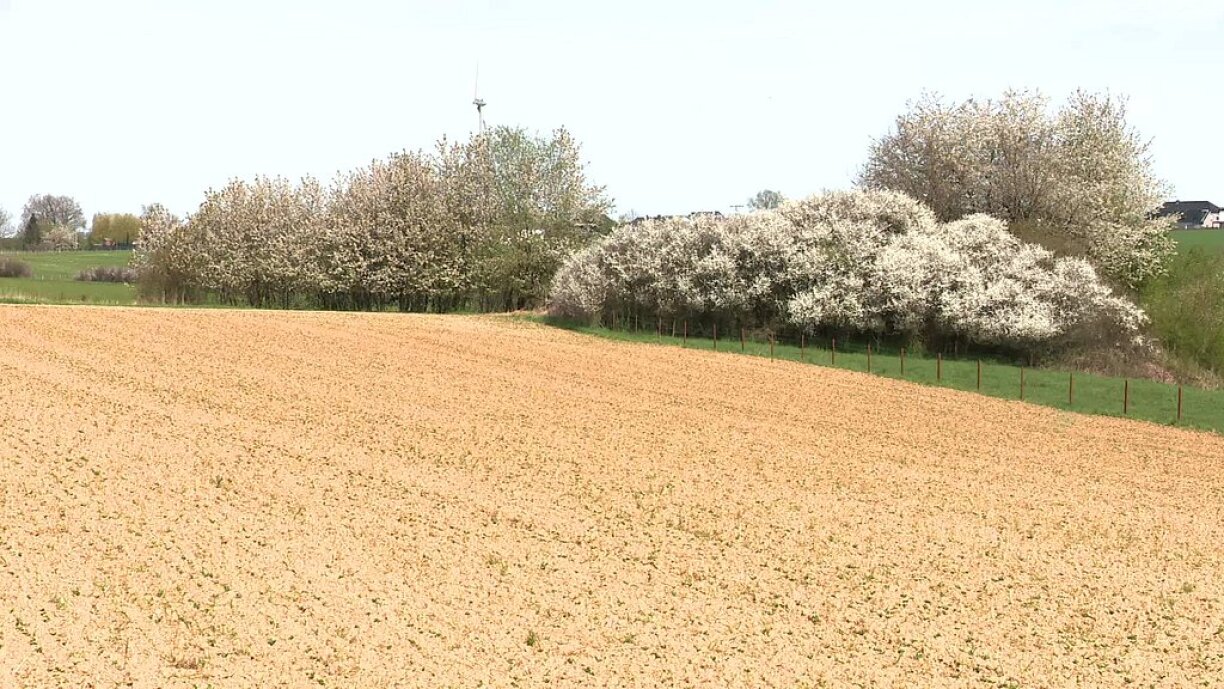
Divided among 1,500 farms, this amounts to essentially nothing, says Luc Emering from the Association of Young Farmers.
“With the decision coming in late spring, the cultures on these fields would now have to be switched, removing what is there and re-sowing.” This is hard to do at this point, he says. And with how small these surfaces are per business, this has next to no benefit for the reliability of supply in the country.
The Centrale Paysanne, the Luxembourg farmers’ association, considers the measure a step in the right direction. But it, too, agrees that more planning time would be needed to really benefit farmers. This depends on the planning schedule of individual farms, but it offers some possibilities, says president Christian Wester.
Reducing biodiversity during a climate crisis?
For others, the EU’s decision is sending the wrong message in the context of the climate crisis. Jacques Pir from the Mouvement Ecologique: “We have to make sure we don’t forget the climate crisis, despite the war. Agriculture is responsible for massive carbon emissions. We have a crisis of biodiversity, with a million plants and animals facing extinction. I think it is a bad signal if we start plowing the surfaces that were reserved for this.”
Marine Lefebvre from SOS Faim, a charity fighting hunger and poverty by supporting family farming, is also unconvinced: “For us, it is completely the wrong path to release fallow lands for agriculture. For one thing, these lands are often fallow because they are not accessible or have poor soil. This means that when they are used, they have poor yields, but the biodiversity has been destroyed all the same.”
New agrarian law raises concerns
The new agrarian law coming into force next year is of more concern to most farmers. An EU directive provides that each business farming more than 10 hectares will have to leave 4% of their land fallow. In Luxembourg, this amounts to around 2,500 hectares total. This is highly problematic, says Christian Wester from the Centrale Paysanne. “We don’t know yet what the harvest will look like this year, but we know there will be wheat shortages. It would be reckless to leave lands unused in the situation we’re in.”
The young farmers’ association agrees with this assessment, but suggests planting legumes on those lands. The EU Commission has not yet decided if the 4% rule will be temporarily lifted due to the war in Ukraine.
For the Mouvement Ecologique, releasing these “greening lands” for conventional, energy intensive farming is counterproductive, when we want to become independent from Russian oil and gas. “Fertilizers require gas, to make ammonia. Pesticides require petrol,” says Jacques Pir. This is the same as trying to save petrol by putting more cars on the roads. Politicians have to make the right decisions, taking into account both the security of supply and the climate crisis, he says.
Global concerns
50 million people worldwide are at risk of famine due to the war in Ukraine.Reducing meat consumption is not just an effective way of reducing carbon emissions, but also of fighting world hunger, says Marine Lebfèbvre from SOS Faim.
“A lot of agricultural land is given to raising cattle. We could release this to feed humans directly, because feeding cattle takes up a lot of agricultural surface. So this is an important lever.”
This requires policies that supports farmers in this transition. It certainly would be possible to develop an agricultural sector specialising in human foods, says Luc Emering from the young farmers’ association.
“Luxembourg has a grasslands agriculture. We are not an intensive agricultural region. [...] This doesn’t mean we shouldn’t do anything, just to be clear.”
Christian Wester, president of the farmers’ association, explains: “Grasslands and meadows are all protected by EU directives. We can’t simply take out the plow and start sowing on them. And with the seeds themselves, you have to follow a certain crop rotation if you want to be successful long term.”
These rotations also include crops that are not suitable for human consumption, says Wester. It would definitely be possible to plant more fruits and vegetables, but this, too, would require a support framework. “We have to survive economically”, says Wester, even if a different crop is better for the environment.
Grasslands made up just over 50% of Luxembourg’s agricultural lands in 2020. Nearly half of cultivated land was used for animal feed. In Germany, it was 60%.